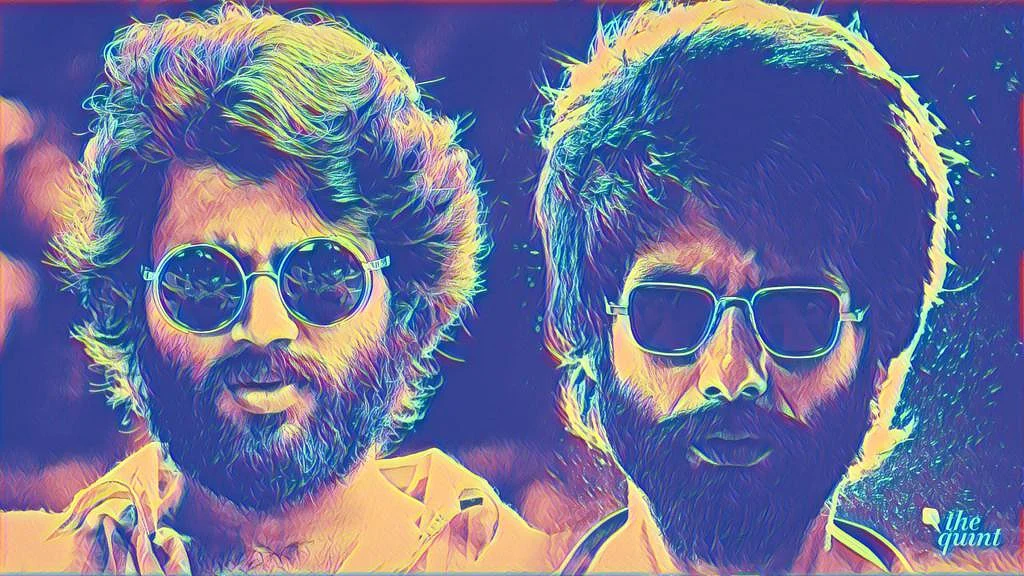Kabir Singh vs Arjun Reddy: Who Is the Bigger Rowdy?
In the showdown between ‘Kabir Singh’ and the original ‘Arjun Reddy’, who’s the bigger rowdy? Read on to know!

advertisement
If you’re one of those who has seen Arjun Reddy, it’s understandable if you went in wincing a bit. For the viewer and for Shahid, it takes a while to settle. You can’t help comparing the blue-ball opening scene, for instance. The original nailed it, while Kabir Singh leaves you…blue-balled. Can they really recreate it? In Hindi? Well, they didn’t, but they did make something else – something that had punch, and Shahid in powerful form.
Too caught up to read? Listen to the story.
Shahid wanted this movie, and he chomps down on it with enthusiasm. He wears the character like a second skin, like it’s a role he wanted to play for a long time. The best part is, he couldn’t have played this 10 years ago. He packages the combined world weariness of his career and life and pours it into the vessel of a complex, bristling young person. It works.
In a recent interview, Shahid said Kabir Singh made some adjustments based on the setting and he was true to his word – the adjustments were minor, so we get to focus on the characters and the story.
‘Tumhari wajah se hai you phooool!’, he says in Jab We Met. Remember that scene? I bring it up because anger isn’t something you associate with Shahid. Not many people can carry off rage. It does funny things to actors. Take Hrithik, for instance. It makes his lips quiver and his eyes tear up. Vijay Devarakonda in Arjun Reddy was a study in unhinged rage. Shahid’s acting chops get him through the angry bits, but these aren’t the parts where Kabir sparkles. It’s in the character contrast – who he is to the outside world and who he is to ‘his’ world, Preethi, that he hits the spot. Arjun Reddy had the element of surprise. The hero was barely a couple of movies old and his previous outing, a hit romantic comedy, had him playing a really subdued, dreamy guy. The female lead was a virtual unknown.
Kabir Singh, on the other hand, had the difficult job of convincing the viewer that these characters were real, not stereotypes made up in the director’s head. Kiara Advani’s susheel, silent girl act was difficult to buy at first. And because of this, the initial romantic stretches are unconvincing. I mean, how can Kiara fall for this poster boy for psycho lover in the space of half a song? However, like Shahid, Kiara makes up for the limp initial scenes with some beautiful nuances further on. Once they’re on as a couple, she does more to convey intimacy than Kabir could with a hundred gestures.
Supporting (Cast), Spiralling & Salvation
A word or three about the excellent supporting cast. Soham Majumdar as Shiva is a truth-bombing, wise cracking friend you wish you had. The screenwriting is so nifty you can recognise some clever Telugu bits making their way into his dialogue like they’re written for him.
Arjan Bajwa is convincing as the hapless brother. He has a couple of great scenes with Kabir. And it’s nice to see Suresh Oberoi on screen. And Kamini Kaushal is wonderful as his empathetic, wise grandmother. Kiara’s side of the family were effective. Disapproving parents make for fun acting material.
Kabir Singh’s self-destructive spiral is just as devastating as Arjun Reddy’s, and his salvation just as rewarding. This is good cinema.
A director remaking his own hit in another language is tricky business, the best of them falter - Vinnai thaandi varuvaaya, the perfect package of performances, story and music in Tamil, was a confusing dud as ark Deewana Tha in Hindi. That Kabir Singh works is not just because of Sandeep or Shahid or Advani, but that no single aspect overpowers the rest.
Toxic Masculinity
Let’s get the toxic masculinity bit out of the way now. Making or liking a film that features toxic masculinity does not mean you celebrate or condone it. This is contextual, of course, because it depends on how the movies are made, how the characters are written.
Even one-note, stalker roles like Dhanush’s Kundan in Raanjhanaa are redeemed by a sensitivity to other characters, and a streak of realism – the boy can’t possibly get the girl. Also, such movies are like simulations where the actors, writers and the audiences together explore ‘what-if’s. What if there was a character like this, and we placed him in a setting like this, with friends like this?
Kabir Singh too features a hero with serious anger management issues and a sense of entitlement. But he’s also got an unshakable sense of justice and a tenderness to the people he loves. It makes it hard to fully love him or hate him. It makes him human. And that’s the most elusive thing on screen today – to discover something truly complex and human.
(At The Quint, we question everything. Play an active role in shaping our journalism by becoming a member today.)